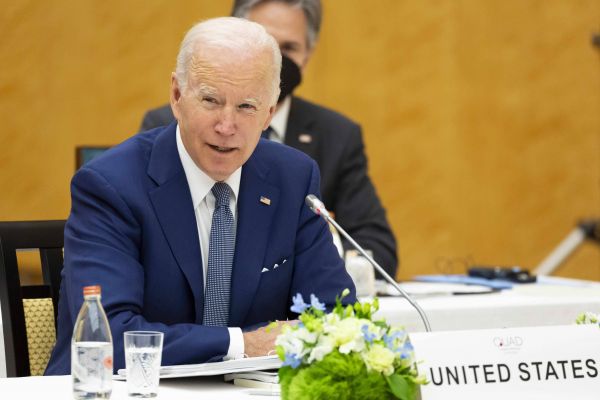Reference News NetworkReported on May 28 The US “Responsible Governance” website published an article titled “Blinken’s China Policy Speech: Nothing New” on May 26, arguing that Biden’s China policy has largely imitated Trump’s The policy of the General Administration is arguably the most consistent policy between Biden and Trump. The full text is excerpted as follows:
U.S. Secretary of State Blinken delivered a bland speech on the 26th, just a rehearsal of the previous administration’s China-related remarks.
Biden’s China policy has largely imitated the Trump administration’s policy and is arguably the most consistent policy between Biden and Trump.
As some international relations experts have said earlier, in fact, to pursue a so-called bipartisan policy toward China is to adopt Trump’s policies regardless of the views of grassroots Democrats.
Given the panic in the US and Australia over the recent security deal between China and the Solomon Islands, it is odd that Blinken repeats the usual rhetoric that the US seeks to create an order in which “nations are free to make sovereign decisions.” But the message from Washington made it clear that the U.S. government believes that freedom does not include security cooperation between states and other major powers other than the United States and its allies.
There is an irreconcilable conflict between “respecting other countries’ sovereign decisions” and actually pursuing an anti-China containment policy, and we shouldn’t be surprised if other countries think the latter will come at the expense of their sovereignty sooner or later.
U.S. diplomatic engagement in the Asia-Pacific region is still very limited, so Blinken’s statement that “we have put diplomacy back at the center of U.S. foreign policy” is hard to convince. Diplomatic activity has increased in recent months as the United States has struggled to catch up after a very slow start. The ASEAN summit, which Blinken mentioned in his speech, was an “encouraging sign,” but overall U.S. diplomatic and economic engagement with the region remains lacking. The paltry $150 million in development funding pledged by the United States to Southeast Asia at the summit also shows that the resources the government is prepared to provide is still quite limited.
One of the least persuasive parts of the speech was when Blinken assured his audience that “this is not about forcing nations to make a choice, it is about giving them a choice”. On the one hand, the United States emphasizes that it “respects ASEAN’s centrality in Southeast Asia and expresses no intention to force Southeast Asian countries to choose between the United States and China”, but its words and deeds are inconsistent.
Despite all the talk of competition with China, the US has little to no competition in terms of economic strategy. This reflects that the Biden administration continues to adopt a “military priority” approach to the Indo-Pacific region, and the US policy is unbalanced.
US President Biden
Blinken avoided an obvious question in his speech on the 26th, that is, Biden’s previous statement on the “military involvement” of the Taiwan issue. Perhaps Blinken thought that insisting that policy had not changed would quell the problem. “There is no reason why our great nations cannot live together peacefully,” Blinken said. But if the president continues to make casual security commitments to Taiwan, the risk of conflict with China is quite high. As the Financial Times recently noted, “the US president’s threat of force against China far outweighs his willingness to engage in meaningful economic engagement with US partners in Asia”.
Until the United States is ready for such engagement, it is likely to suffer setbacks in its quest for greater influence.
[
责编:袁晴 ]
